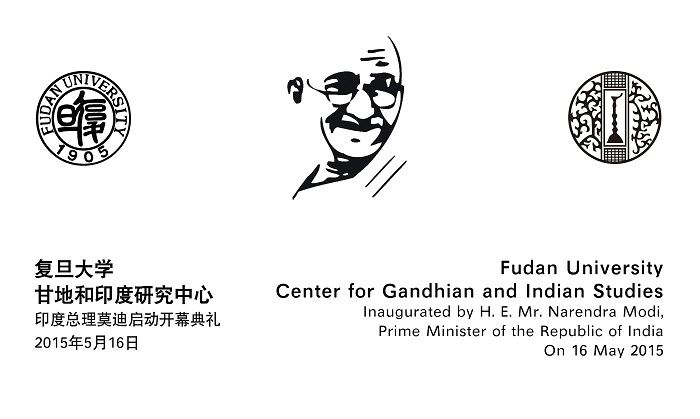
Fudan University establishes the Center for Gandhian and Indian Studies, Indian Prime Minister Narendra Modi attended the opening ceremony of the Center and unveiled it together with Professor Xu Ningsheng on May 16. This Center is affiliated with National Institute for Advanced Humanistic Studies and Professor Liu Zhen is the first Director of the Center.
Earlier on May 15, under the witness of China’s Premier Li Keqiang and Mr. Modi, Professor Xu Ningsheng signed with the representative of Indian Council for Cultural Relations (ICCR) a memorandum of cooperation with regard to the establishment of the Center at Fudan, which marks the new heights and depths of the university’s cooperation with India.
The Center plans to focus on humanity studies related with India as well as the research on contemporary politics and economy of India. It will organize research activities regarding the languages, religions, cultures and Buddhism of India, the cultural histories of China and India as well as the Indian political and economic system. Also, the Center aims to deepen the study of Gandhi’s political philosophy and its impact on the contemporary world. To promote Indian languages and culture, the Center will also organize annual conferences on Indian studies, launch visiting scholar programs and establish a library on Indian studies.
Professor Xu Ningsheng noted in his welcome apeech that Indian Studies at Fudan could be traced back to the last century and the current research on the Silk Road and Xuanzang’s pilgrimage to the Western regions was also closely related with India. He emphasized that the university would integrate the resources of ICCR and other academic institutions and strive to build a platform for the communication and cooperation of Gandhian and Indian Studies in China.
Mr. Modi noted, Gandhian studies in the newly established Center would convey to the world a very important message, that is, the wisdom of Gandhi was still exerting its effect in the current society. He emphasized that both the Chinese and Indian People were eager for knowledge and wisdom. In Indian philosophy, knowledge and wisdom were without boundaries; while in China, people like Xuanzang travelled long distances for truth and religious wisdom. However, he felt the exchange of knowledge and wisdom would be more difficult than the opening up for economic activities and tourism since it would require stronger power of determination. He hoped that China and India, which account for one third of the global population, would make progress through the exchange of knowledge and wisdom and show to the world a new way of life.